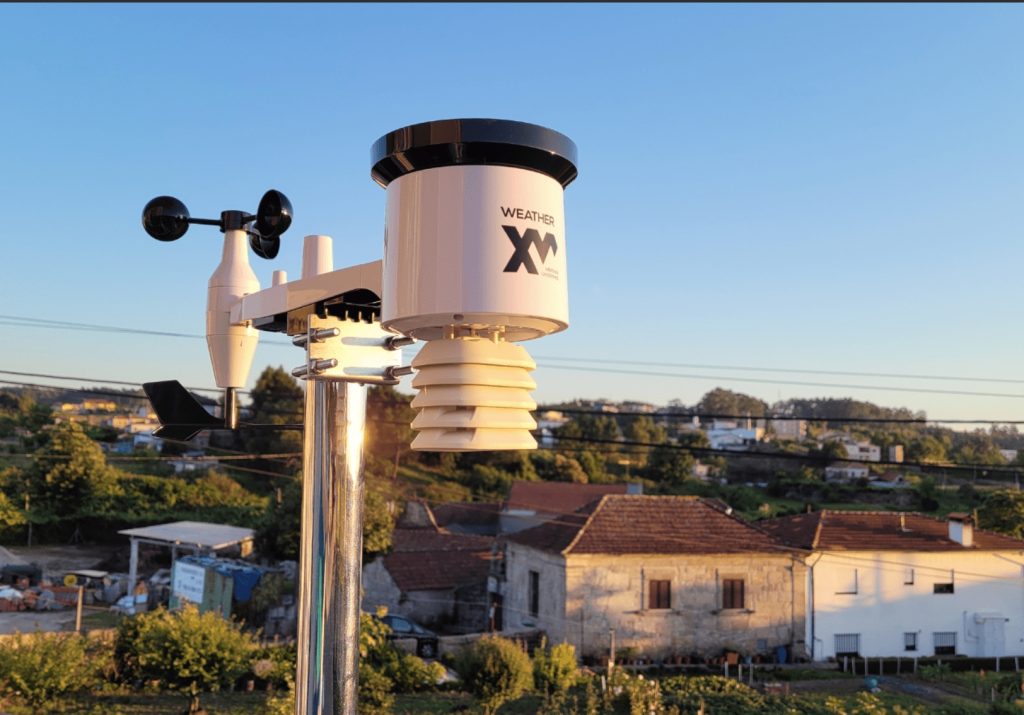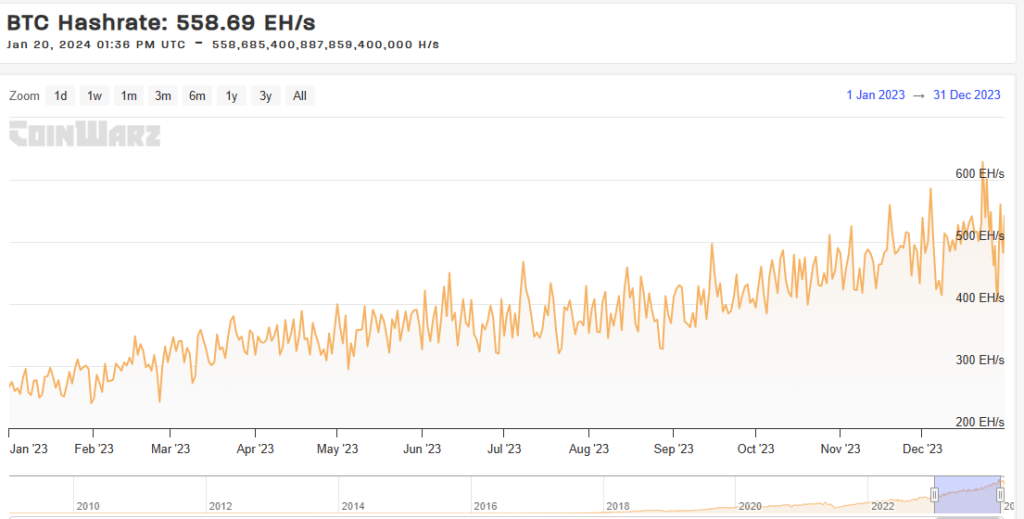Bitcoin hash rate drops by 34% amid freezing temperatures in Texas

Many areas of the Lone Star State experienced subzero temperatures in January — a weather event that has previously led to Bitcoin miners temporarily curtailing operations.

A sudden freeze in Texas may have contributed to a 34% drop in the Bitcoin hash rate, as some miners were forced to curtail operations amid demand on the state’s energy grid.
Beginning on Jan. 14, temperatures in many parts of Texas dropped below freezing for one of the first times since a massive ice storm in February 2023. According to data from YCharts, the total Bitcoin (BTC) network hash rate fell from more than 629 exahashes per second (EH/s) on Jan. 11 to roughly 415 EH/s on Jan. 15 — a 34% drop. The analytics site reported the hash rate increased to more than 454 EH/s on Jan. 16 as temperatures in Austin briefly rose above freezing during the day.
Frozen gas infrastructure in Texas was the main culprit in the power failures of 2021, which was blamed for some 240 deaths. After help from wind power, the grid appears to be holding this week as wind chills dipped below 0 degrees Fahrenheit. https://t.co/mJPovybKDV
— The New York Times (@nytimes) January 17, 2024
According to Foundry’s data pool, Texas accounted for roughly 29% of the Bitcoin hash rate in the United States. Many mining firms relocated to the state from China following the country’s crackdown on BTC miners and crypto. Several firms have operations in Texas, including Marathon Digital, Riot Platforms, Bitdeer and Core Scientific.
Related: 1.5M houses could be powered by the energy Texas miners returned
Unlike in 2021, when record low temperatures and a sudden winter storm caused hundreds of power outages to homes at a time when many roads were covered in ice and heavy snow, there were fewer reports of significant disruptions to Texas’ power grid. Many mining firms have joined a program organized by the Electric Reliability Council of Texas (ERCOT) that compensates them for adjusting their load on the state’s power grid during periods of high demand.
“Marathon, along with other Bitcoin miners, have been curtailing operations to support the Texas electric grid and the citizens of the state, who have been battling sub-zero temperatures,” Charlie Schumacher, vice president of corporate communications at Marathon Digital, told Cointelegraph. “This is precisely how the system should be working. Bitcoin miners serve as base load that turns off during extreme weather events, making energy more abundant and cheaper for those who need it within minutes.”
A Riot spokesperson added:
“Riot actively participates in demand response programs, allowing ERCOT to manage the Company’s load when assistance is crucial for balancing the grid amid challenging weather conditions.”
In Texas’ case, high demand often equates to extreme heat in the summer and winter conditions, potentially damaging the state’s energy infrastructure. In December 2022, Argo Blockchain reported a significant drop in activity due to winter conditions at its Texas Helios facility, mining roughly 25% less Bitcoin than it had in November. As of Jan. 17, ERCOT reported that “grid conditions are expected to be normal” starting at midnight local time.






… [Trackback]
[…] Information to that Topic: x.superex.com/news/bitcoin/2824/ […]
… [Trackback]
[…] There you can find 38965 more Information on that Topic: x.superex.com/news/bitcoin/2824/ […]
… [Trackback]
[…] Information on that Topic: x.superex.com/news/bitcoin/2824/ […]
… [Trackback]
[…] Here you can find 61247 more Information on that Topic: x.superex.com/news/bitcoin/2824/ […]
… [Trackback]
[…] There you can find 69278 more Info to that Topic: x.superex.com/news/bitcoin/2824/ […]
… [Trackback]
[…] Information to that Topic: x.superex.com/news/bitcoin/2824/ […]
… [Trackback]
[…] Find More here to that Topic: x.superex.com/news/bitcoin/2824/ […]
… [Trackback]
[…] Read More Info here on that Topic: x.superex.com/news/bitcoin/2824/ […]
… [Trackback]
[…] There you will find 85434 additional Info to that Topic: x.superex.com/news/bitcoin/2824/ […]
… [Trackback]
[…] Read More here to that Topic: x.superex.com/news/bitcoin/2824/ […]
… [Trackback]
[…] Information to that Topic: x.superex.com/news/bitcoin/2824/ […]
… [Trackback]
[…] Information to that Topic: x.superex.com/news/bitcoin/2824/ […]
… [Trackback]
[…] There you can find 80320 more Info to that Topic: x.superex.com/news/bitcoin/2824/ […]
… [Trackback]
[…] Information on that Topic: x.superex.com/news/bitcoin/2824/ […]
… [Trackback]
[…] Read More here on that Topic: x.superex.com/news/bitcoin/2824/ […]
… [Trackback]
[…] Info to that Topic: x.superex.com/news/bitcoin/2824/ […]
… [Trackback]
[…] Here you will find 76690 more Information to that Topic: x.superex.com/news/bitcoin/2824/ […]
… [Trackback]
[…] Find More Information here to that Topic: x.superex.com/news/bitcoin/2824/ […]
… [Trackback]
[…] Read More here on that Topic: x.superex.com/news/bitcoin/2824/ […]
… [Trackback]
[…] Find More to that Topic: x.superex.com/news/bitcoin/2824/ […]
… [Trackback]
[…] Find More to that Topic: x.superex.com/news/bitcoin/2824/ […]
… [Trackback]
[…] Information to that Topic: x.superex.com/news/bitcoin/2824/ […]
… [Trackback]
[…] Find More Information here on that Topic: x.superex.com/news/bitcoin/2824/ […]
… [Trackback]
[…] Find More here on that Topic: x.superex.com/news/bitcoin/2824/ […]